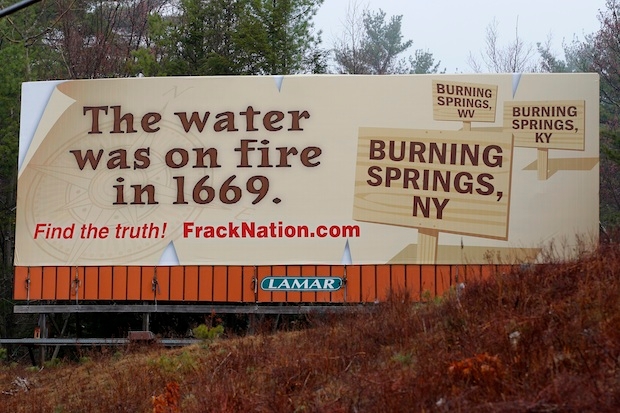The city of Denton, Texas, doesn’t often make the news, but last month it did: it became the first city in the US – by a margin of 59 per cent to 41 per cent – to vote to ban fracking. Is the US love affair with shale ending? The industry has not been its own best friend, James Ball, special advisor to Tachebois Ltd, told the Spectator Energy Forum this morning.
He asked the audience – made up of a large number of professionals from the oil and gas industry – how many had watched Gasland, the US documentary by Josh Fox which helped to form negative public view of the industry. None had. ‘See, that’s problem,’ he said. ‘The guy started out with an open mind, but the gas industry decided it would be better not to speak to him.’
The best advert for fracking, says Ball, is the town of Poole, Dorset. It has some of the most expensive property in the world. And yet the wealthy residents, who might be expected to be powerful Nimbys, don’t even realise they are sitting on top of an enormous horizontally-fracked oil field. He has advice for fracking companies: why on Earth are they not doing their drilling offshore, in Morcambe Bay rather than on land?
British companies should not be put off by falling gas prices, he adds, nor the imminent export of US shale gas to Europe. When it becomes clear that gas can be exported by ship, that should stimulate shale gas in the UK because it will show the potential of what could become a British export industry.
More from today’s Spectator Energy Forum later, or keep up-to-date on Twitter by following the hashtag #SpecEnergy








Comments